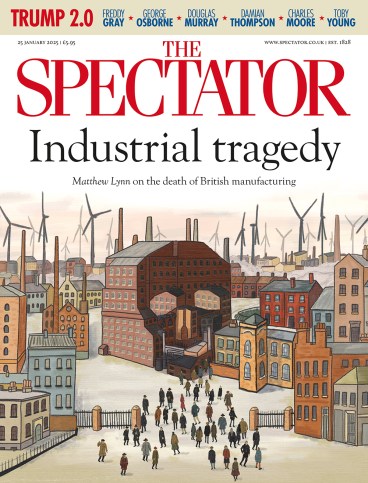
‘I love learning about things’ (Amelia, aged nine). Not all children do, but many who have not experienced the pleasure of learning early come to see the point of it in later life. Like most writers, I loved books from childhood, and learned favourite pages simply by re-reading. When Thomas Hardy came along for A-level, I was so passionate about his novels that I learned whole pages by heart. But like Amelia, I also loved learning about things – places, cultures, weather, insects, trees, how coal was mined and steel made and glass blown. Ladybird Books were a great source of interest and information, and still are, though when I glanced into The Ladybird Book of the Computer I realised it is now historical and of no practical use.
It was not until my sixties that I began to feel a sort of hollow where learning had been
As life trundles on, through work and parenthood and social responsibilities, we still learn as we go, though we mostly acquire skills which are essential, but not enriching or character-forming in quite the same way as history and literature, biblical studies and classical languages. The mind works tirelessly, whether we are paying attention or not – if it didn’t we would not survive for long. But apart from rote stuff, like times tables, spelling and historical dates, I think we mainly learn by a process of osmosis, absorbing information as we grow up and coming to understand how life works by experience. We learn by our mistakes, too, of course – indeed, I often think that is the only way we do learn everything apart from straightforward facts.
It was not until my sixties that I began to feel a sort of hollow where learning had been, just at the time when my children had left home (if only in the physical sense). I now had space in my head and my days. I wanted to fill the time gaps aside from work, but not with socialising or taking up – dread word – a ‘hobby’.
My generation grew up with Shakespeare, the Bible and classical mythology as inherent parts of life and language, and what I did not already know of the first I learned with marriage to a Shakespeare scholar. But although I went to a convent school, my deeper, more detailed knowledge of biblical and Christian history was more holes than fabric.
Since I read for my first degree, in the traditional way, the study opportunities offered by academia have changed, beginning with Harold Wilson’s great – possibly his only –legacy, the Open University. After it, one by one, the established universities set up their own ‘distance learning’ courses, so that it was easy for me to study for an MA in theology without leaving the house. Perhaps because I was doing it for its own sake and not to embark upon or progress a career, I found this new learning absorbing and also, to my relief, that the skill of digesting new information, before writing an extended essay on it, had not left me, only become a little rusty –nothing a can of WD40 would not fix.
The one barrier to studying for a degree, now and at any time of life, is money. The city of Coventry paid for my three years at King’s College, London, but those privileges are long gone. Younger undergraduates must tie the millstone of a student loan round their necks or rely on the Bank of Mum and Dad; older learners pay for themselves but age does not automatically bring spare cash along with it. It does, however, make one enterprising, and a formal extension of standard education is not essential. There are books, physical and online, journals and libraries.
But, like so many things in life, libraries are not what they were. Book stocks have dwindled, and book stacks disappeared decades ago, except in the British and other academic libraries. Older and scholarly titles were sold off, or – worse – binned, budgets were slashed. Still, even the smallest public library has internet access, refurbished laptops are cheap, every book out of copyright can be downloaded free (check out Project Gutenberg). Then there’s Kindle, though I can’t read books on screen; I need paper and print. But there is a way round every obstacle.
Older learners pay for themselves, but age does not automatically bring spare cash along with it
We have stopped growing physically by our twenties but, other things being equal, never mentally. Our brains renew and repair themselves as long as we live and breathe, sometimes even after quite severe damage, by stroke, say, or accident. ‘You learn something new every day’ is a truth, not a cliché.
Understanding can be harder than in youth. I am currently trying to get to grips with quantum physics. It’s making my forehead bleed and I know I will reach my limit soon, probably at the point when the maths is incomprehensible. Until then, I am not giving up.








Comments